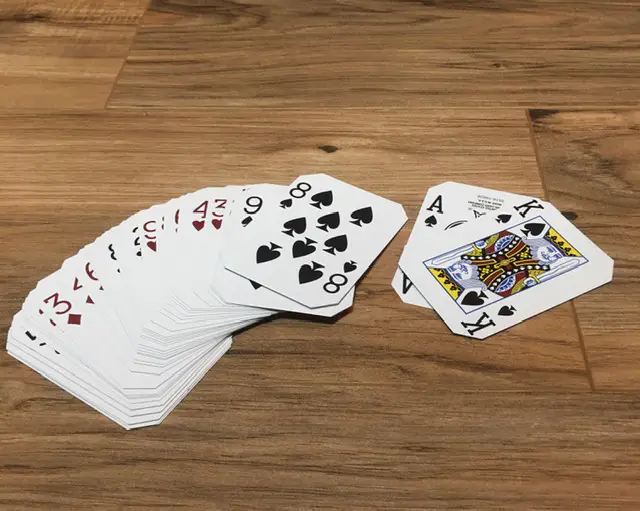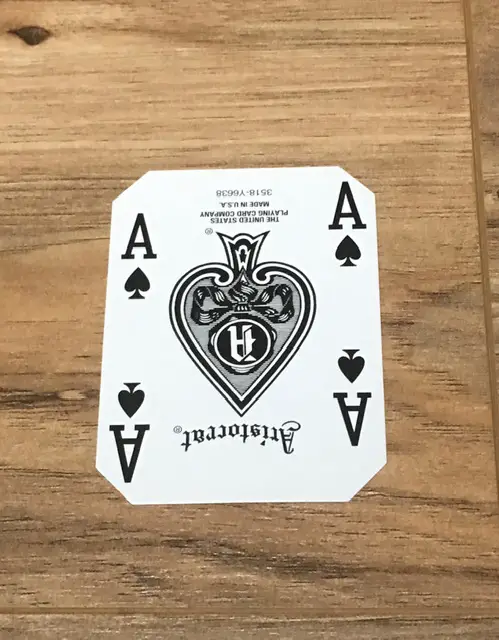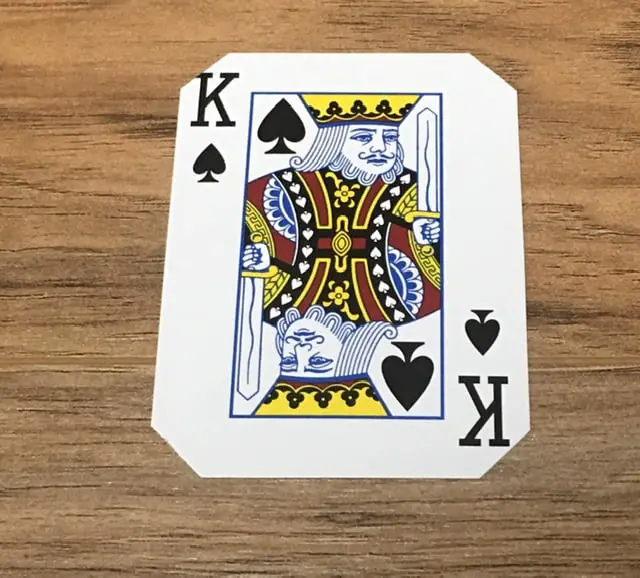Board and card games have made a resurgence in recent years. Both young and old are returning to the face-to-face entertainment of playing games. But while there are literally thousands of games to choose from, collecting these games can get pricey.
But you should not let that deter you from enjoying an electronic-free evening. More than likely you already have a deck of playing cards thrown in a drawer somewhere in your house. If not, you can pick up a deck or two for just a couple of bucks.
Candyman is a group game in which one player attempts to sell candy to other players without letting a designated player known as the police know. The candyman uses a discrete signal like winking or scratching nose to players to signify selling candy. If the candyman accidentally signals the police or the police see before all other players have been sold to, the game is over.
For each game in the series, we’ve included a printable rules guide. Check out our entire series of card games using one or more decks of playing cards in Playing Cards: How to.
- Ages 8+
- 20 min game play
- 3-?? players
- Large group compatible
Overview
Because of the nature of this role playing game, there aren’t any limitations to the number of players. In larger groups, you may want to have more than one candyman and one police player to keep the game active. The candyman’s goal is to sell to as many candy buyers as they can before the police catch on.
Game Setup

Using one deck of cards, remove all the face cards with the exception of one king and one ace. Add one number card for each player. In a group of twenty, you should have one ace, king and 18 number cards. If using a larger group (more than 25 people) optionally you can double the ace and king; creating 2 police and 2 candymen. Shuffle, then pass out one card to each player. Players should not let on what card they have in hand.
Ace: Candyman

The player who draws the ace becomes the candyman for that round. The candyman discreetly signals another player by winking or or other sign, indicating they are “selling candy”. If they sell to the police, they’ve been “busted” and the game ends.
King: Police

The player who draws the king becomes the police for this round. Their job is to try and discover quickly which player is the candyman. The police watch other players and look for the signal made from candyman to buyer.
Number card: Candy buyers
The players who receive a number card are the candy buyers.
Game Play
When all cards have been passed out, the game begins. Players sit or move among each other, looking for a sign. The candyman gives a discrete signal such as a wink, tapping face, etc, to another player, indicating they are “selling candy”.
If the candyman is successful in selling to a buyer, that player must show their card and call “SOLD”. Players, with the exception of the police, may never reveal the identity of the candyman.
While the candyman is selling their candy, the police look for signs. If they think they know who the candyman is, they can accuse the suspect by announcing “busted”. The suspected player reveals their card. If the king is exposed, the round ends. But if not, that player is out of the game, and the signalling continues.
Winning the Game
When the candyman has been busted by the police, the round ends. The cards are shuffled and another round begins.
While scoring is not required, you can opt to score each round. Points accrue in each round by:
Candyman: earn one point per successful deal, and minus 2 points if busted.
Police: minus one point per incorrect bust, and 2 points for correctly identifying the candyman
Candy buyer: Earn one point for buying candy or being wrongly accused.
The first player to earn 21 points is the winner.
Also known as: Drug Dealer
